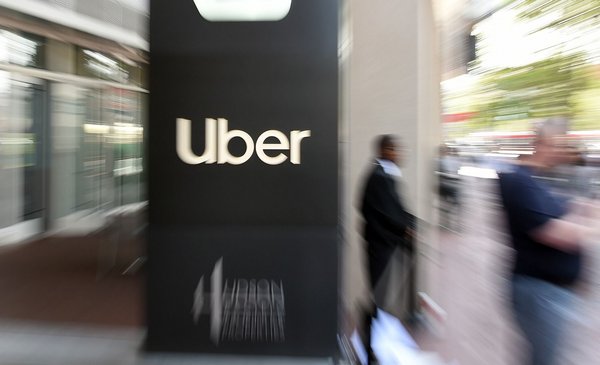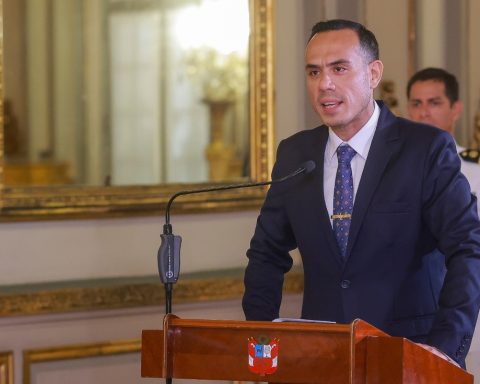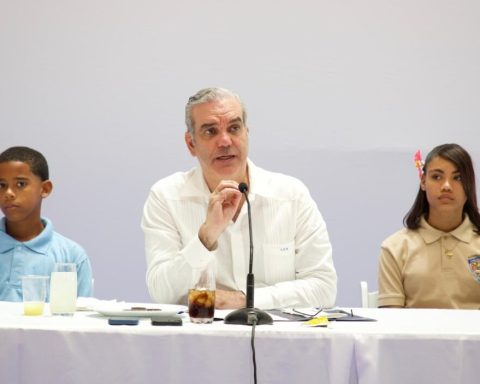The Labor Law Court of the Capital of the 20th shift resolved this Wednesday to condemn Uber to pay vacation salary and Christmas bonus to a new Uber driveraccording to a ruling to which he had access The Observer.
The sentence, which can be appealed by the US company, affirms that there is a dependent employment relationship between the parties and that Uber must pay him “from the date of the lawsuit” promoted by the driver different items.
They are license, vacation salary, bonus and presenteeism (provided for in the Salary Council for the transport of people in private vehicles) to which fines, interest and mandatory damages are added, generated since the driver’s relationship with Uber began. and for as long as you keep driving.
The ruling issued by the judge Ana Karina Martínez indicates that the agreement that the worker accepted with Uber has clauses that are “extremely unfavorable”. “He could only accept the terms that were offered to him, without any possibility of discussion or modification,” he indicated.
For the judge, the first indication of dependent work is that the work is carried out according to the instructions and control of another person. “It is Uber who fixed in the service contract the form of execution of the work”Martinez said.
“Despite the company’s claim to consider the driver an ‘independent entrepreneur,’ in fact it directs multiple aspects of the service,” and cites some of the terms and conditions that the platform requires of its drivers. One is that the passenger “shall be transported directly to their specified destination… without interruptions or unauthorized stops,” demonstrating some of Uber’s mandates.
It was also ensured that the American app “You can hardly say that it is limited to connecting to independent third parties” since the driving partner and the person who intends to move “accept the price” that the company sets “unilaterally” for the projected trip, and that part of that money goes to the coffers of the firm.
The judge, who also considered for her ruling that the app can activate a dynamic rate, without intervention or consideration of the driver, indicated that the worker “has nothing of an entrepreneur”, more than the ownership of a registry in the General Tax Directorate and in the Social Security Bank.
“Although the vehicle through which the transport is carried out is a necessary tool, so is the electronic platform, which is the tool provided by Uber and which is decisive for this type of service. And this tool is managed exclusively by Uber, in accordance with the criteria that it unilaterally determines, based on its business plan,” he says.
This is the second failure two years that condemns the American company in Uruguay. The last one had been ruled in favor of Esteban Queimada in June 2020, who then it was upheld by a court months later.
In addition to these two cases, which were sponsored by the lawyer Nicolás Pizzo, there are other drivers who have already started these lawsuits against Uber.
The arguments of the driver and Uber
In the hearings prior to this ruling, the driver put forward a series of arguments, which were finally addressed by the judge in charge of the case. The main one is that Uber “sets the rate to be charged to users”, which ultimately “determines the remuneration or salary of drivers, a central element of any employment relationship”. In addition, it reserves the right to modify the calculation of the fee “at any time at its discretion”.
At the same time, the application “exercises the power of control or surveillance” of the vehicles through location services and can “remove the driver”, for which it also applies “the disciplinary power”.
The fact that users rate the drivers after the trips, and that Uber requires maintaining a minimum average rating, is another ingredient that intensifies the dependent employment relationship between the parties.
For its part, in the hearings in which they took place on this issue, the company said that the driver “voluntarily” He decided to enter into a business relationship with Uber and start working as a “driving partner”. In addition, he adds that the driver’s independence can be “evidenced” with the record he made before the Montevideo City Hall, where he not only indicates that he is an app driver, but also an Easy Taxi driver, “it is not logical that an alleged employee would perform tasks for companies that are direct competitors.
Uber’s statement after the ruling
“We regret the decision of the Court and we are concerned about the implications that this type of decision may have for all Uruguayans who seek an opportunity to generate additional earnings independently and flexibly through the platform. Since it is a first instance sentence, we are going to study it and define the next steps,” they reported.














